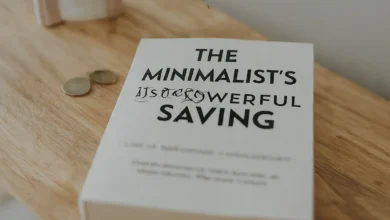Transform Your Relationship with Money

Money plays a crucial role in our lives. It affects our mental health, relationships, and overall well-being. Many of us have a complicated relationship with money, shaped by our upbringing, experiences, and beliefs. But here’s the good news: you can transform your relationship with money and improve your life in the process.
Did you know that financial stress is one of the leading causes of anxiety and depression? A study by the American Psychological Association found that 72% of Americans feel stressed about money at least some of the time. This stress can impact every aspect of our lives, from our sleep quality to our job performance.
In this article, we’ll explore how to develop a healthy money mindset and improve your financial well-being. We’ll provide practical steps and actionable advice to help you transform your relationship with money, leading to reduced stress, better decision-making, and greater overall happiness.
Are you ready to take control of your financial future and create a more positive relationship with money? Let’s dive in and discover how you can make this transformation happen.
Understanding Your Current Money Mindset
Before we can transform our relationship with money, we need to understand what a money mindset is and identify our current beliefs about finances.
A money mindset is the set of beliefs and attitudes we hold about money. These beliefs shape our financial behaviors, decisions, and ultimately, our financial outcomes. Many of us have developed our money mindsets unconsciously, influenced by our parents, society, and personal experiences.
Common negative money beliefs include:
- Money is the root of all evil
- I’ll never be good with money
- Rich people are greedy
- I don’t deserve financial success
- There’s never enough money
To identify your own money beliefs, take a moment for self-reflection. Ask yourself:
- What did I learn about money growing up?
- How do I feel when I think about my finances?
- What are my biggest fears related to money?
- Do I believe I can achieve financial success?
Write down your answers. This exercise will help you become more aware of your current money mindset, which is the first step towards transformation.
The Impact of Your Money Relationship on Your Life
Your relationship with money doesn’t just affect your bank account. It influences nearly every aspect of your life. Understanding this impact can motivate you to make positive changes.
Here’s how your money attitudes can affect different areas of your life:
- Mental Health: Financial stress can lead to anxiety, depression, and sleep problems. A healthy money mindset can reduce these issues and improve overall well-being.
- Relationships: Money conflicts are a leading cause of divorce. A positive money relationship can lead to better communication and trust in partnerships.
- Career Choices: Your money beliefs might push you towards or away from certain careers, affecting your job satisfaction and earning potential.
- Overall Life Satisfaction: Financial well-being contributes significantly to life satisfaction and happiness.
Key impacts of your money relationship include:
- Stress levels and emotional well-being
- Decision-making abilities in various life areas
- Self-esteem and confidence
- Ability to pursue goals and dreams
- Quality of personal and professional relationships
By transforming your relationship with money, you can positively influence all these areas of your life.
Steps to Transform Your Relationship with Money
1. Awareness and Self-Reflection
The first step in transforming your money relationship is becoming aware of your current habits and thoughts. This awareness allows you to identify patterns and beliefs that may be holding you back.
Try these journaling prompts for money reflection:
- What’s my earliest memory about money?
- How do I feel when I check my bank account?
- What financial decisions am I most proud of?
- What money habits would I like to change?
Regular self-reflection can lead to powerful insights about your money mindset.
2. Challenging Negative Money Beliefs
Once you’ve identified your money beliefs, it’s time to challenge the negative ones. Here’s a table with examples of how to reframe limiting beliefs:
| Negative Belief | Positive Reframe |
|---|---|
| “I’ll never be good with money” | “I can learn to manage money effectively” |
| “Money is the root of all evil” | “Money is a tool that can be used for good” |
| “I don’t deserve financial success” | “I deserve financial well-being and I’m working towards it” |
Remember, changing beliefs takes time and practice. Be patient with yourself as you work on reframing your thoughts.
3. Educating Yourself about Personal Finance
Financial literacy is crucial for a healthy money relationship. The more you understand about personal finance, the more confident you’ll feel in managing your money.
Here are some recommended resources:
- Books: “Your Money or Your Life” by Vicki Robin, “The Psychology of Money” by Morgan Housel
- Websites: Investopedia, NerdWallet, The Balance
- Courses: Coursera and edX offer free online personal finance courses
Start with topics that interest you most, whether it’s budgeting, investing, or debt management. Remember, financial education is a lifelong journey.
4. Setting Healthy Financial Goals
Setting SMART financial goals is a crucial step in transforming your money relationship. SMART stands for Specific, Measurable, Achievable, Relevant, and Time-bound. This approach helps you create clear, actionable objectives.
Examples of short-term and long-term financial goals:
Short-term:
- Create an emergency fund of $1,000 in 3 months
- Pay off a $500 credit card debt in 6 months
- Save $200 for a weekend getaway in 2 months
Long-term:
- Save $50,000 for a house down payment in 5 years
- Invest $200 monthly for retirement over the next 30 years
- Become debt-free (excluding mortgage) in 3 years
Remember, your goals should align with your values and life aspirations. Regularly review and adjust them as needed.
5. Practicing Mindful Spending
Mindful spending involves being conscious and intentional about your purchases. It’s about aligning your spending with your values and goals, rather than buying on impulse.
Tips for implementing mindful spending habits:
- Pause before purchasing: Ask yourself if you really need the item
- Use the 24-hour rule for non-essential purchases
- Track your expenses to understand your spending patterns
- Prioritize experiences over material possessions
- Practice gratitude for what you already have
By adopting mindful spending habits, you can reduce unnecessary expenses and feel more satisfied with your purchases.
6. Cultivating Gratitude and Abundance Mindset
Developing an abundance mindset can significantly improve your relationship with money. This mindset focuses on opportunities and possibilities rather than limitations.
Exercises to foster an abundance mindset:
- Keep a gratitude journal: Write down three things you’re financially grateful for each day
- Visualize abundance: Imagine achieving your financial goals in detail
- Use positive affirmations: For example, “Money flows easily into my life”
- Celebrate small wins: Acknowledge every financial achievement, no matter how small
Remember, an abundance mindset doesn’t mean ignoring financial realities. It’s about approaching your finances with optimism and creativity.
7. Seeking Professional Help if Needed
Sometimes, transforming your money relationship might require professional assistance. Consider financial therapy or counseling if:
- You experience extreme anxiety or depression about money
- You have recurring conflicts about finances in your relationships
- You struggle with compulsive spending or hoarding
Working with a financial advisor can also be beneficial. They can help you:
- Create a comprehensive financial plan
- Make informed investment decisions
- Navigate complex financial situations
Don’t hesitate to seek help. It’s a sign of strength, not weakness, to ask for support when you need it.
The Benefits of a Transformed Money Relationship
Transforming your relationship with money can lead to numerous positive outcomes that extend far beyond your bank account. Here are some key benefits:
- Reduced financial stress: A healthier money mindset helps you approach financial challenges with calm and confidence.
- Improved decision-making: With a clearer understanding of your finances, you’ll make more informed choices in all areas of life.
- Greater financial stability: Better money management skills lead to improved savings and reduced debt.
- Enhanced overall well-being: Less money stress often translates to better mental and physical health.
- Stronger relationships: Open communication about finances can improve personal and professional relationships.
- Increased self-esteem: Achieving financial goals boosts confidence and self-worth.
- More freedom and opportunities: Financial stability opens doors to new experiences and possibilities.
Remember, these benefits don’t happen overnight. They’re the result of consistent effort and a commitment to personal growth.
Conclusion
Transforming your relationship with money is a journey that requires patience, self-reflection, and consistent effort. By understanding your current money mindset, challenging negative beliefs, setting healthy goals, and practicing mindful spending, you can create a more positive and empowering relationship with your finances.
Remember, a healthy money relationship isn’t about having the most money or never experiencing financial challenges. It’s about approaching your finances with awareness, confidence, and a growth mindset. It’s about using money as a tool to support your values and life goals, rather than letting it control your emotions and decisions.
As you embark on this journey, be kind to yourself. Celebrate small victories and learn from setbacks. Every step you take towards a healthier money relationship is a step towards greater overall well-being and life satisfaction.
Call to Action
We’d love to hear about your experiences with transforming your money relationship. What challenges have you faced? What strategies have worked for you? Share your thoughts in the comments below and let’s learn from each other.
Want more tips on financial wellness and personal growth? Subscribe to our blog for regular updates and insights. Remember, every small step counts in your journey towards financial well-being and a happier, healthier life.
Start your transformation today. Your future self will thank you for it!



